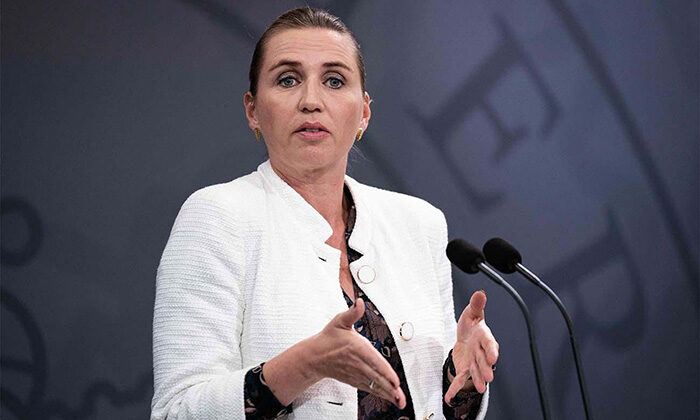
Danish Prime Minister Mette Frederiksen. COURTESY PHOTO.
Christian Churches in Denmark are pushing back against a new draft law that requires all sermons in foreign languages to be translated into the country’s native language (Danish) and submitted to the government for approval.
Country officials argue that the “Law on Sermons in Languages Other Than Danish,” seeks “to create greater openness about the preaching of religious preachers in Denmark when they preach in languages other than Danish.”
According to The Guardian the draft law also seeks to “enlarge the transparency” of religious events and sermons and for the most part “prevent radicalization and counter incitement to hatred and terrorism” by radical Muslim groups in the country.
The bill has the backing of Prime Minister Mette Frederiksen, ChristianHeadlines reported 3rd February, 2021.
It is unclear whether the law would require sermon translations to be sent to the government before or after being given.
Critics of the draft law say it will create “suspicion and marginalization” of minority groups and “could pave the way for religious harassment.”
In the letter, sent to Danish Prime Minister Frederiksen and Church Affairs Minister Joy Morgensen, church leaders said the planned law marks “the latest in a series of bills that […] send negative political signals about the role of religion in society,” suggesting that “religious practice is an obstacle to integration into an open and pluralistic society.”
““I believe this overly restrictive step would constitute a limitation on freedom of expression, which I know is prized in Denmark, as one of the world’s oldest democracies,” Anglican Bishop Robert Innes of the European diocese said.
The proposal also has practical problems, the bishop said, arguing it is not feasible to translate a weekly sermon delivered extemporaneously.
“Preachers don’t always write full text of their sermons, they might write notes,” Innes said. “They might preach extempore as the archbishop of Canterbury sometimes does and there are questions of idiom and nuance which requires a high level of skill in translation of course. It is a high bar. It is a skilled art and it is an expensive skill as well.”
“We do not only hold services on Sundays, but also baptisms, weddings and funerals, throughout the week,” Rajah Scheepers, who serves as pastor of St. Petri church in Copenhagen told media. “It is not realistic to expect that we simultaneously translate all these gatherings or that we translate them in advance.”
Scheepers said, “There is much concern.”
Catholic churches, too, oppose the idea. Anna Mirijam Kaschner, general secretary and spokeswoman of the Nordic bishops’ conference, reportedly said the proposed law would harm religious liberty.
The Lutheran World Federation (LWF) General Secretary Rev. Dr Martin Junge reiterated his concerns on 26 January, writing to Danish government leaders that: “This proposed legislation is contrary to specific provisions of the freedom of religion or belief, enshrined in international human rights law.”
Sources say the cost of translating sermons for the nation’s non-Danish-speaking congregations will be a staggering 37.4 million Danish krone ($6,069,589) per year, the Danish National Church’s Interchurch Council estimated.
News Agencies contributed to this report.

